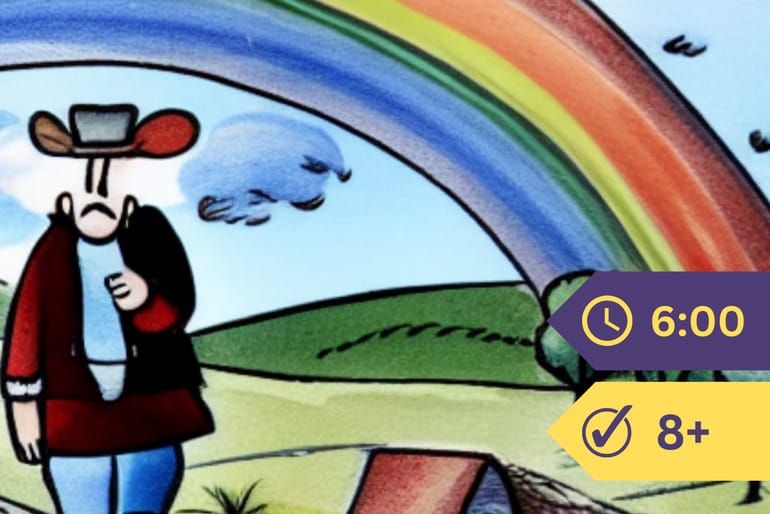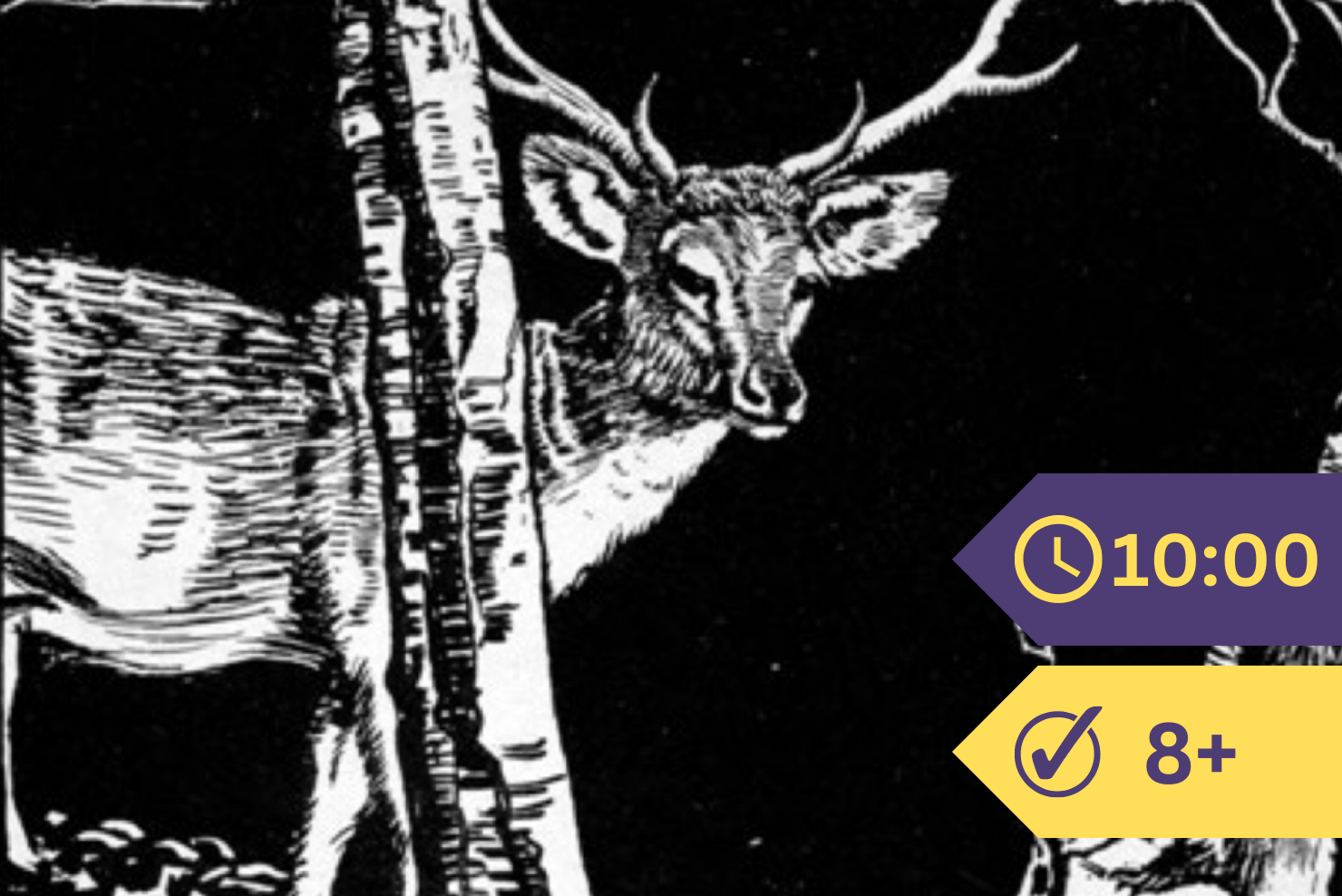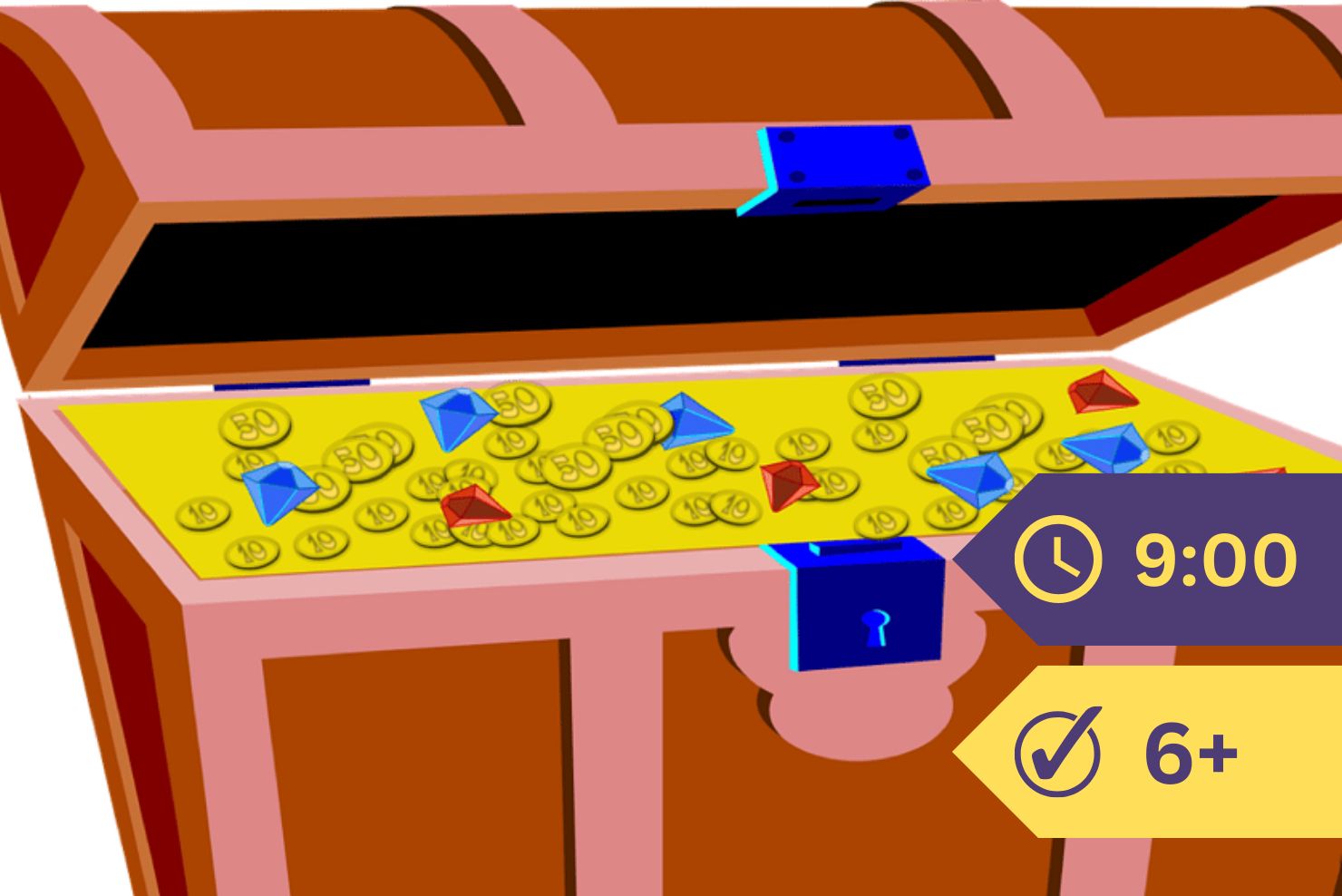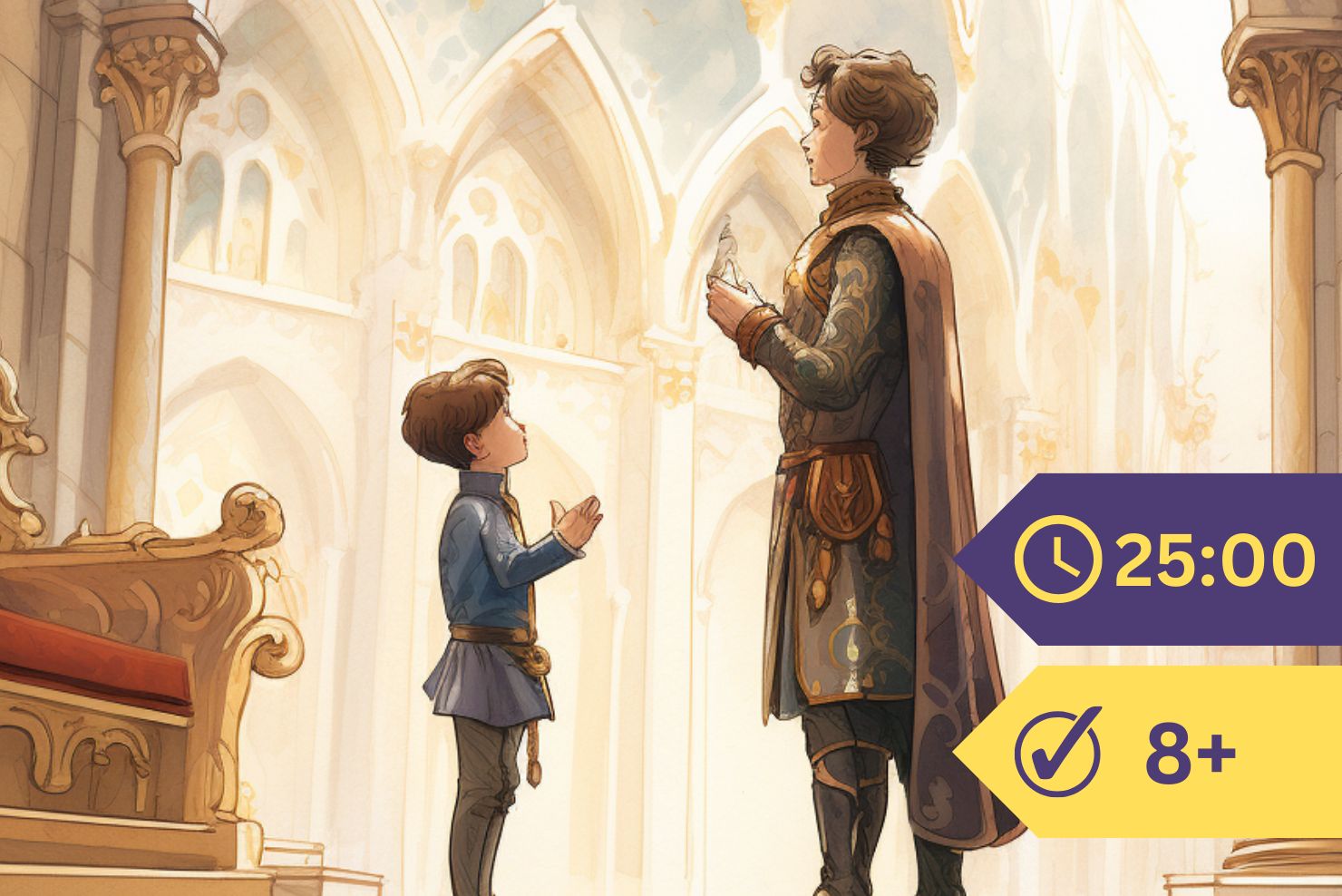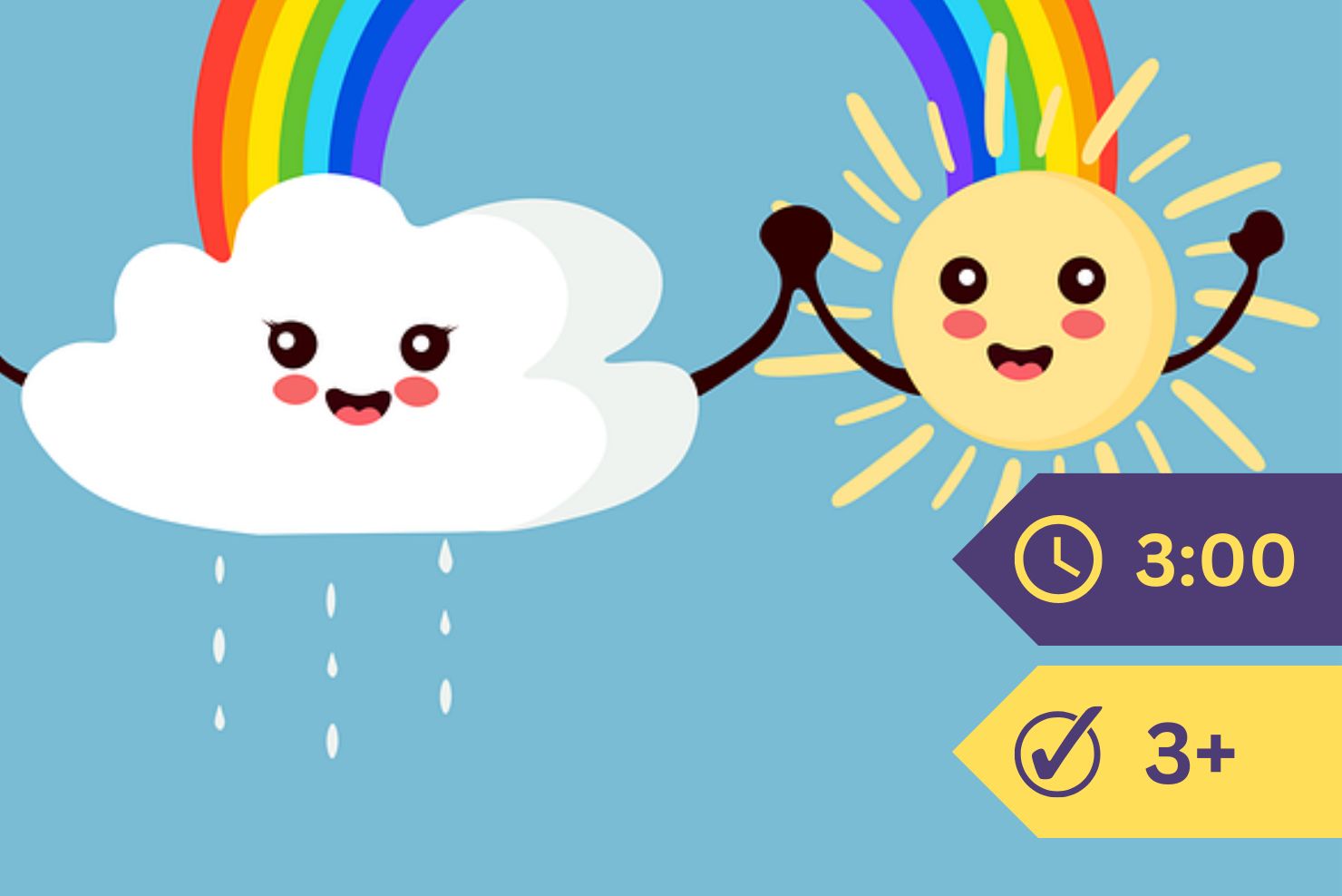It was a dreary November morning in the village of Twelve-Trees. The branches of the trees were bare, and the rain fell like tears. Twelve-Trees was, even in its best times, a poor village. The past summer had been very bad, with meager wheat fields and poor orchards. “It was the worst summer ever,” said the oldest villagers.
There was little to eat and no one had any money. Some residents had pinned all their hopes on the barrels of cider at the inn. But this was no comfort for the hungry children. Their childhood was overshadowed by poverty. Even the cats and dogs in the village seemed gloomy. The main street in the village was quiet and empty.
On a chilly day in November, an old man approached the village. He had a strange device that looked like a knife sharpener hanging at his side. Under his arm, he carried several old umbrellas. Apparently, he traveled with them. As he walked through the streets, he sang a song with strange words.
His song sounded sad, but his face radiated happiness. He had bright blue eyes and the smile of a little boy. Here and there, a face appeared in the windows to see who was singing. But the people only saw the old knife sharpener and lost interest again. The children, however, were curious and crowded around the stranger in admiration.
A little girl, with tears streaming down her pale, unwashed face, caught the old man’s attention.
“Little one,” he said with a magical smile and a voice full of reassuring love, “give me one of those tears, and I will show you what I can make of it.”
He touched the child’s face with his hand, caught a tear, and placed it on his wheel. As he pedaled with his foot, the wheel began to move so fast that there was only a swirl to be seen. Then, miraculous colored rays began to rise, filling the gloomy street with colored rainbows. The sad houses were lit up and took on a fairytale appearance. The faces of the children brightened and smiled again.
“Well, little one,” he said, when the wheel stopped turning, “did you like what I made from that sad little tear?” And the children laughed and begged him to do another trick for them.
At that moment, a poor, dirty woman who was talking to herself and laughing strangely came down the street. The village knew her as Crazy Sally, and the children often played mean tricks on her. As she approached, they started laughing at her loudly. But the old man who made rainbows stopped them.
“Stay here, children,” he said, “and watch.”
As he said this, his wheel spun again, and a light shot out that shone on the poor old woman. She turned into a beautiful young girl with bright eyes. The children called out, amazed, for their parents to come and see. No one had ever seen Old Sally like this. Only a very old man remembered her as a beautiful young girl whose lover, a sailor, had drowned in the North Sea.
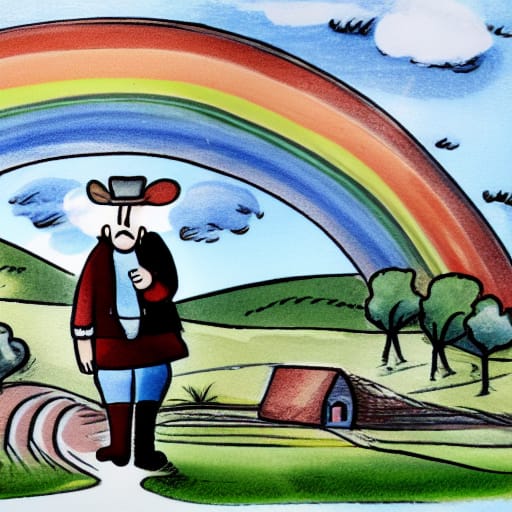
“Who are you?” asked the old man as he stepped forward. “Are you perhaps a wizard, changing a child’s tears into a laugh, an old crazy woman into a beautiful young girl, and turning a barren field into a waving cornfield?”
“Give me an ear of your last harvest,” the old knife sharpener replied, “and let me put it on my wheel.”
A sheaf of wheat was brought to him, and once again his wheel began to hum, and again that strange light shot out and spread far along the houses over the fields beyond. And before the eyes of the sad farmers, the fields turned into a sea of golden wheat. Once again, the old man, who remembered Crazy Sally as a young girl, spoke to the knife sharpener: “What and who are you? Are you perhaps a wizard who changes a child’s tears into a laugh, an old crazy woman into a beautiful young girl, and a barren field into a waving wheat field?”
And the man with the strange wheel replied, “I am the maker of rainbows. I always bring hope. November is always May for me, tears are always a laugh, and darkness is light. The sad heart makes its own sadness, the happy heart makes its own joy. With the magical touch of hope, everything becomes soft as a spring flower and bright as a morning star.”
But the village of Twelve-Trees was not convinced by these words. Only the children believed everything the laughing old man said.
“Rainbows!” their fathers and mothers spoke mockingly. “Rainbows! What good can rainbows bring to a starving village?”
The old man who made rainbows listened to their mocking words but said nothing. He prepared to leave and said goodbye with a strange smile, “Have you never heard that there is a pot of gold at the end of the rainbow…?”
“A pot of gold?” the whole village cried out.
“Yes,” he replied, “a pot of gold! I know where it is, and I’m going to find it.”
And he set off. Then the villagers looked at each other and said over and over again, “A pot of gold!” They took their cloaks and walking sticks and set off to follow the old man. But when they reached the edge of the village, there was no trace of him. He had disappeared mysteriously. But the children never forgot the rainbows!

